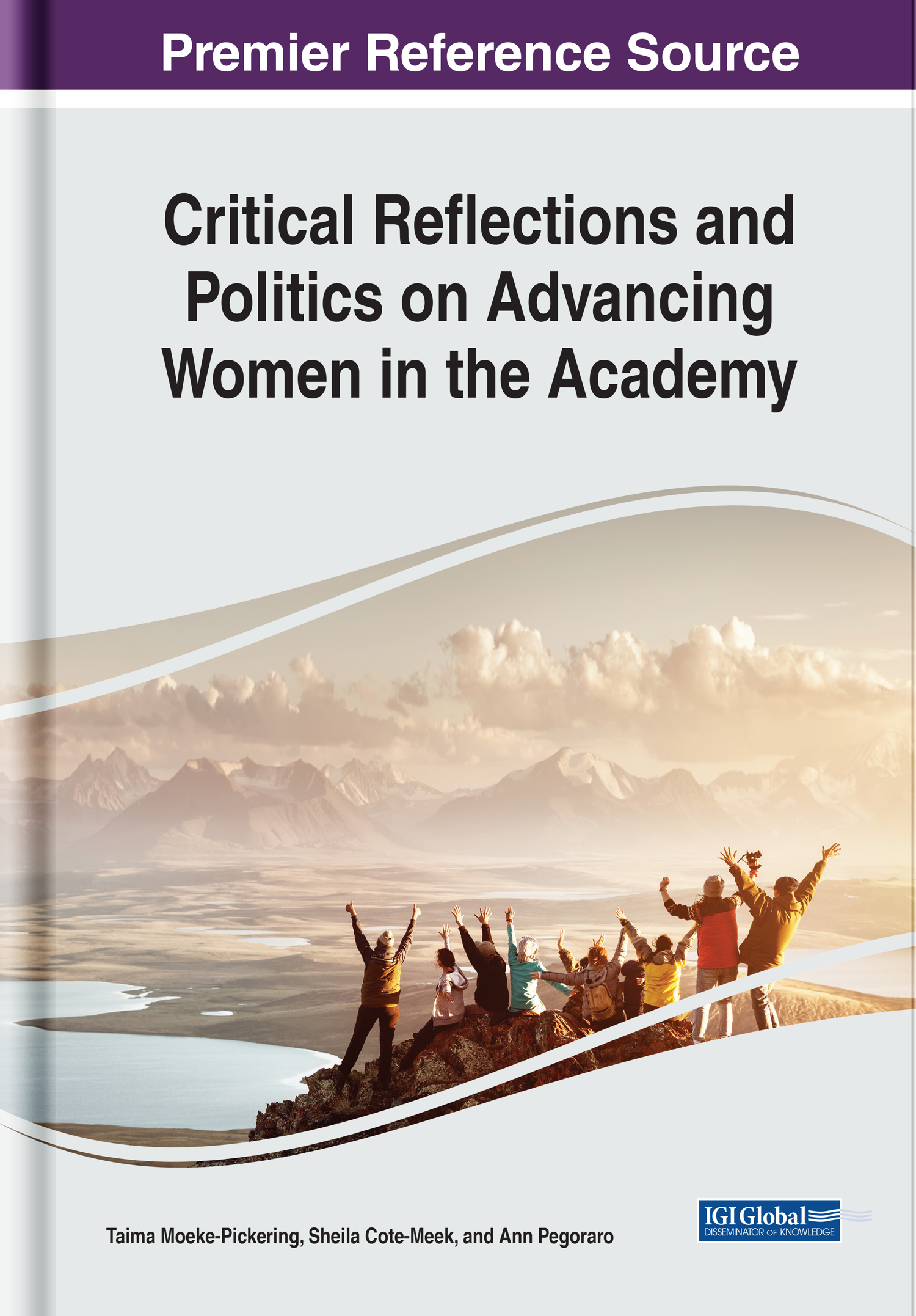
A new book focused on the importance of women in the academy will be virtually launched on Thursday, May 28 with a free webinar. The book, Critical Reflections and Politics on Advancing Women in the Academy (ICI Global 2020) was co-edited by Laurentian University Professor Taima Moeke-Pickering, York University Vice-President of Equity, People and Culture Sheila Cote-Meek, and Laurentian University Professor Ann Pegoraro.
ICI Global is hosting this free webinar, titled “Impacts of Women in the Academy: Confronting Gender Equality, Diversity, and Leadership,” to mark the launch of the book. The event on May 28, begins at 10 a.m. EST and those interested in participating should pre-register at https://register.gotowebinar.com/register/5241606532468208398.
The book is a critical scholarly publication that seeks to make the academy responsive and inclusive for women. Critical Reflections and Politics on Advancing Women in the Academy explores why women in the academy are overlooked in leadership positions, why there is a pay parity deficit, and what is being done to change the situation. It features a wide range of topics, including mentorship, curriculum design, and equality.
10 Questions for Sheila Cote-Meek

Q: How did you and your co-editors come up with the title?
SCM: The book reflects women’s experiences in the academy hence the concept critical reflections. As the draft chapters came in, we noticed that an integral theme was that many of what women were experiencing or working through were political, hence the politics concept in the title.
Q: What are the key messages contained within this book that you want readers to grasp?
SCM: First, the barriers, challenges and resilience that women experienced in the academy. Second, that many women experience this differently, so intersections or intersectionality are critical to understanding women’s experiences in the academy. And finally, we wanted to make sure that we laid solid tracks for the future generations of women in the academy.
Q: How long did it take to prepare the book and edit the many essays that are presented in Critical Reflections and Politics on Advancing Women in the Academy?
SCM: This book took two years to complete, from conceptualizing the book and issuing the call, to using our networks to invite and select authors we knew were doing work in this area. And finally, receiving, reviewing and editing draft chapters, final edits and publication.
Q: How did you select the contributors to the book?
SCM: Authors were selected in two ways. A call brought in interested contributors and “shoulder tapping” brought in other contributors to ensure that we selected a wide range of experiences from across sectors – from professors and researchers to academic leaders. We also drew from across all disciplines and communities, including STEM, coaching, Indigenous, LGBTQ+ and from other countries. Many of the authors are busy and we wanted to make sure of their availability.
Q: What was the most interesting fact or experience you encountered when reviewing the submissions for the book?
SCM: The overwhelming challenges that women experienced in academia. It was sad to read some of the narratives and yet the powerful messages of success and resilience were also important.
Q: What are the key points contained in the chapter that you wrote for the book?
SCM: My chapter titled “International Indigenous Resilience and Navigating Academic Administration” provided my reflections on navigating the academy as an Indigenous scholar and administrator. In the chapter, I discuss the challenges and different approaches to transcend these challenges. For example, I have always viewed sources of education, whether formal or informal, as an important element to facilitating change especially for Indigenous Peoples. So, some of the strategies I have used are to keep my eye on the larger vision, keep true to my core values and draw on my own Indigeneity. My ancestors survived and transcended many challenges and it is their strength that keeps me grounded.
Q: If you were starting this project again, what would you change?
SCM: I would select more authors from other countries, disciplines and areas within the academy that we did not cover.
Q: What authors have most influenced your life?
SCM: bell hooks, Linda T. Smith, Franz Fanon and Albert Memmi.
Q: If you could have dinner with someone dead or alive, from any period in history, who would it be and why?
SCM: Michelle Obama – she is a wonderful leader, stayed true to her core values and stood strong despite negative media attention.
Q: Will there be another book to follow this one? If so, what will it focus on?
SCM: We hope that another group of women editors from another country pick this up and add to this collection. We hope that this lays a foundation for others to follow. The overall aim is to advance women in academia, their experiences and way of scholarship.


